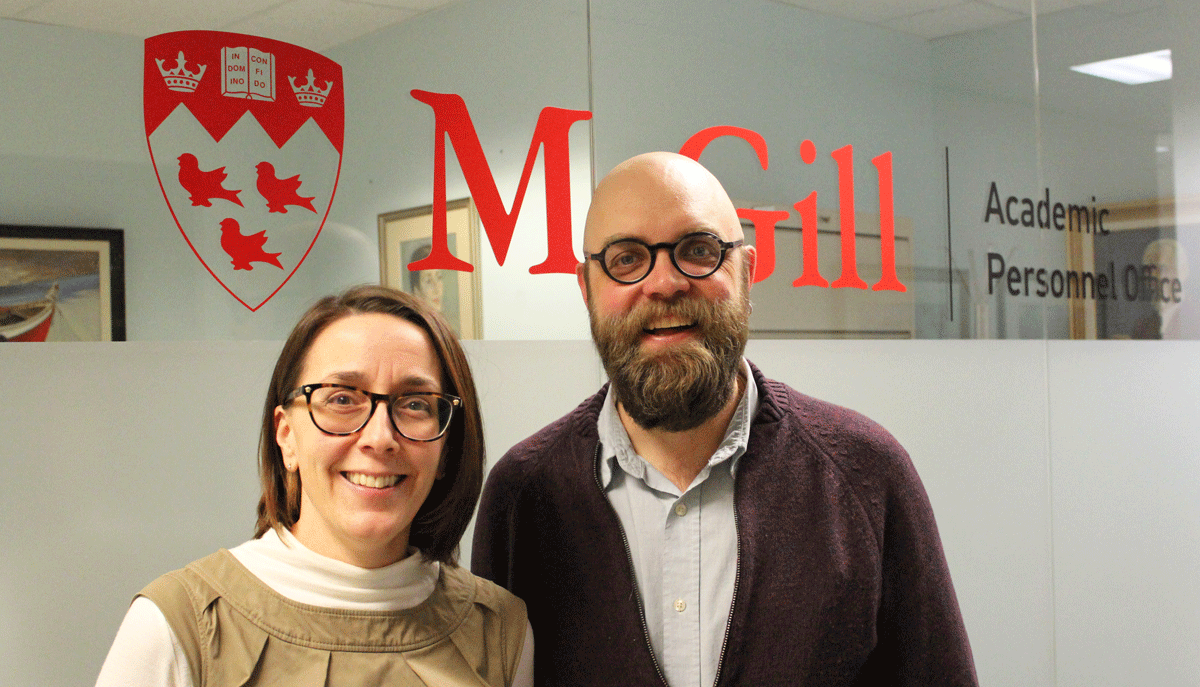
In December 2017, the Quebec National Assembly passed Bill 151: An Act to prevent and fight sexual violence in higher education institutions. One key element of this legislation is the requirement that institutions of higher education adopt a policy surrounding sexual violence prevention.
- In 2016, McGill adopted its Policy Against Sexual Violence.
- In 2017, McGill followed up by making amendments to our Policy on Harassment, Sexual Harassment and Discrimination Prohibited by Law.
- In the summer of 2018 an ad hoc Senate committee was struck to review McGill’s Guidelines on Intimate Relationships Between Teaching Staff and Students and Regulation on Conflict of Interest.
Another important requirement in Bill 151 is the implementation of institution-wide training on the topic of sexual violence. Under the direction of the Provost, and in accordance with Bill 151 and the Policy Against Sexual Violence, McGill is currently moving forward with implementing training measures for all community members. This important initiative is being led by the Dean of Students, Prof. Christopher Buddle, and the Associate Provost (Equity and Academic Policies), Prof. Angela Campbell, who recently sat down with the Reporter for a conversation about the steps McGill is taking to provide essential information, education, and training on sexual consent and sexual violence awareness and prevention.
What is sexual violence and why is it an important issue for institutions of higher education, McGill specifically?
As defined by McGill’s Policy Against Sexual Violence, sexual violence is an umbrella term that covers any sexual act targeting a person’s sexuality, gender identity or gender expression, and that is committed without consent. Sexual violence includes various forms of misconduct, including: sexual assault, sexual harassment, stalking, indecent exposure, voyeurism and sexual exploitation.
Sexual violence is a reality on all campuses. McGill is dedicated to fostering and maintaining an inclusive, respectful, and safer learning environment for all. Therefore, the University has a key role in helping prevent and respond to acts of sexual violence, especially through services like the Office for Sexual Violence Response, Support and Education (OSVRSE). It is essential that we, as a campus community, work together to ensure we are studying and working in an environment that is respectful and free from harm.
What is McGill planning to provide in terms of training on consent and sexual violence prevention?
One of the best strategies for prevention is through education. To that end, we are leading a workgroup mandated to acquire and implement training modules on sexual consent and sexual violence awareness and prevention for the entire McGill community. The workgroup, which includes representatives of OSVRSE, Enrolment Services, Teaching and Learning Services (TLS), Human Resources and IT Services, is currently working to deliver two different online module suites, one for students and another for staff and faculty. In the meantime, and once we are further along in the process, we will consult with a wider set of stakeholders (including students) about the content and format for the modules.
These modules will take people between 30 and 60 minutes to complete, and will include topics such as: understanding sexual violence; the meaning of consent; bystander intervention; and supporting survivors. The modules have initially been produced by Concordia University and its online service provider, KnowledgeOne. We currently are working to tailor content to McGill, and ensuring that our own context, resources, and policies are referenced. Given that our two institutions have shared goals and responsibilities in relation to our respective campuses in regard to sexual violence, we are delighted to partner with Concordia on this initiative.
Who will be required to participate in this training and what is the timeline for its implementation?
The online training will be mandatory for everyone at McGill – all students, faculty and administrative and support staff. However, because of McGill’s large population the training will be conducted using a staggered approach. First up, will be incoming students for the Fall 2019 semester, who will complete the online training before they arrive on campus. Academic staff and in-course students will be required to complete the online modules during the Fall 2019 term, and training for administrative and support staff will start in January 2020. More information on how you can access these modules from a McGill platform will be communicated by Spring 2019.
More broadly, prevention of sexual violence requires awareness raising. We are called by Quebec law to ensure that all members of the campus community (students, faculty, administrative staff) receive sexual violence training and education. Because of our size as an institution, we will meet this requirement through online education. Ultimately, this is one piece of the larger campus effort to address and prevent sexual violence, and provide increased support to all people affected.
McGill’s Office of Sexual Violence Response, Support & Education offers support to all members of the McGill community (students, faculty and staff) who have been impacted by sexual violence, whether it be sexual harassment or assault, gender-based or intimate partner violence, or cyberviolence on or off campus. Services are provided regardless of gender, sexual orientation, age, citizenship or immigration status, and of when it happened. The services are free and are available in French and in English.
Learn more online (https://www.mcgill.ca/osvrse/), or contact the O-SVRSE via email (osvrse@mcgill.ca) or by phone 514-398-3954
